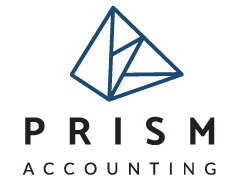Medical practices came under the spotlight again over Payroll Tax obligations following the NCAT decision in Thomas and Naaz Pty Ltd v CCSR [2021] NSWCATAD 259, which was handed down on 3 September 2021.
The Tribunal held that the payments made by the medical practice service entities to the doctors engaged under Service Agreements were “wages” for the purpose of payroll tax. This is notwithstanding the fact that the payments represented the doctors’ own Medicare billings collected by the service entities on their behalf.
As a result, Thomas and Naaz Pty Ltd was liable to pay $795,292.95 for payroll tax assessments issued by the Commissioner of State Revenue for the period from 1 July 2013 to 31 March 2018.
The facts of Thomas and Naaz payroll tax case were broadly as follows:
- The Doctors operated from three medical centres run by Dr Thomas and Ms Naaz under written Service Agreements.
- Under the terms of these agreements, the medical centres provided rooms, administrative and support services to the doctors, including charging and collection of Medicare fees on behalf of the doctors, for a service fee.
- The doctors bulk billed each patient and the patients assigned their Medicare benefit to the doctors.
- The doctors had the option to submit claims of patient fees to Medicare directly or have the medical centres do so on their behalf. All but three doctors requested the medical centres to collect fees for them.
- Each medical centre had a separate bank account and the fees collected on behalf of the doctors were received into that bank account. At the end of each period, the practice would pay the doctors 70% of their patient fees collected from Medicare and retain the remaining 30% as a service fee.
NCAT Reasoning
Payroll tax is imposed on “taxable wages” upon “the employer by whom taxable wages are paid or payable”. For the purpose of Payroll Tax Act (NSW), the concept of “wages” is extended to amounts paid or payable by an “employer” in relation to performance of work under a relevant contract.
To determine whether the payments remitted to doctors were “wages” under the Payroll Tax Act and thus subject to payroll tax, the Tribunal had to consider the following issues:
1) whether the Agreements between the Doctors and the Medical Centres were “relevant contracts” within the meaning of Payroll Tax Act; and
2) if so, whether the Payments were amounts “paid or payable” to the doctors by the medical centres “for or in relation to the performance of work relating to [the Agreements]”.
After analysing the terms of the agreement and other evidence, the Tribunal answered in the affirmative to both questions.
Were the Agreements “relevant contracts”?
On the first issue, the Tribunal held that despite medical services being directly provided by doctors to patients, where such services were a necessary part of the applicant’s medical centre business, the Doctors provided them not only to the patients but also to the medical centres. Therefore, the agreements were “relevant contracts” for the purpose of Payroll Tax Act.
The following features of the Agreements were of particular relevance in reaching this conclusion:
- The doctors agreed to provide the services on a five day per week basis, including weekend rotation and in this regard agreed to meet roster commitments and to provide advance notices of planned vacations, which had to be approved by the medical centres;
- The doctors had an obligation to promote the interests of the clinics, including not channelling patients away from the clinics;
- The doctors were required to abide by the operating protocols of the clinics and to complete all necessary documentation for that purpose; and
- Upon leaving the clinics, the doctors would be subject to a restrictive covenant preventing them from practicing within 5km of the clinics for a period of 2 years.
The Tribunal considered whether certain exceptions to the “contractor provisions” applied in this case. Specifically, Dr Thomas submitted the evidence that the services were supplied by doctors who ordinarily performed the services of that kind to public generally during the financial year. However, the evidence was not sufficient to satisfy the tribunal that the exemptions applied, and therefore the argument failed.
Were the Payments “for or in relation to the performance of work relating to” the Agreements?
On the second issue, the Tribunal determined that there was a “clear relationship” between the provision of services by the doctors and the Payments.
“The availability of the Medicare benefits to the Doctors was a direct consequence of the provision of the services. The Payments were the amount of those benefits less a 30 per cent deduction. Whilst the relationship between the provision of the services and the Payments was not direct, there was a clear indirect relationship sufficient to satisfy the terms of the section.”
Thomas and Naaz relied on the decision in Homefront Nursing arguing that the payments were not in relation to performance of work but were instead the return of funds already belonging to the Doctors. The Tribunal rejected this argument instead relying on the reasoning in Optical Superstore to conclude that the beneficial ownership of the funds by the recipient is not a relevant consideration in applying the provisions of the Payroll Tax legislation.
The Tribunal was satisfied that the Payments made by the clinics to the doctors were deemed to be wages under the Payroll Tax Act (NSW) and found the Assessments issued by the State Revenue, including the imposition of penalties and interest, were correct.
Another issue noted in this case was the accounting treatment of the flow of money. The amounts paid to the doctors were reported as “Contractor, sub-contractor and commission expenses” in the income tax returns and the financial statements of Thomas and Naaz for 2015 and 2016 financial years. The gross billings of the doctors were reported as income of the clinics. While the issue was not considered for determining whether the payments were wages, it appeared to be a relevant fact to the question of whether the penalties and interest should be remitted.
Points of Considerations for Practice Owners
- The case demonstrates that the definition of “wages” for the purpose of Payroll Tax is very broad and is capable of being extended to remittances of patient fees already owned by practitioners.
- The Service Agreements would be “relevant contracts” for the purpose of Payroll Tax if under the terms of the agreements, apart from providing services to the patients, the practitioners also provide services to the medical centres.
- We have always stressed the importance of reviewing terms of your Service Agreements with the practitioners for potential exposure to Payroll Tax and other liabilities in light of growing number of cases in the area.
- The definition of “relevant contract” contains number of exceptions under the Payroll Act. Taxpayers must be able to provide sufficient evidence to demonstrate that the exceptions apply if they want to rely on them.
- Payroll Tax is a state-based tax. Each state has its own Payroll Tax legislation, rates and thresholds but largely the key provisions of the states Payroll Tax Acts are harmonised. The relevance of Thomas and Naaz case is not limited just to NSW, it has potential implications in other states.
- This is a Tribunal decision that does not has the same authority as Court decisions. At the time of writing, the decision can be appealed to the Supreme Court of NSW. We will monitor any further developments concerning Payroll Tax in medical industry.
Need Help?
Prism Accounting specialises in providing taxation and accounting services to medical and dental professionals. Contact us today to make an appointment with our specialist tax adviser.
Payroll Tax for medical practices cases:
Thomas and Naaz Pty Ltd v Chief Commissioner of State Revenue [2021] NSWCATAD 259
Homefront Nursing Pty Ltd v Chief Commissioner of State Revenue [2019] NSWCATAD 145
Commissioner of State Revenue v The Optical Superstore Pty Ltd [2019] VSCA 197
Disclaimer: All the information provided on this website is of general nature and does not constitute tax, legal or financial advice. It does not take into account your personal circumstances and is not intended to replace consultation with a qualified professional.




